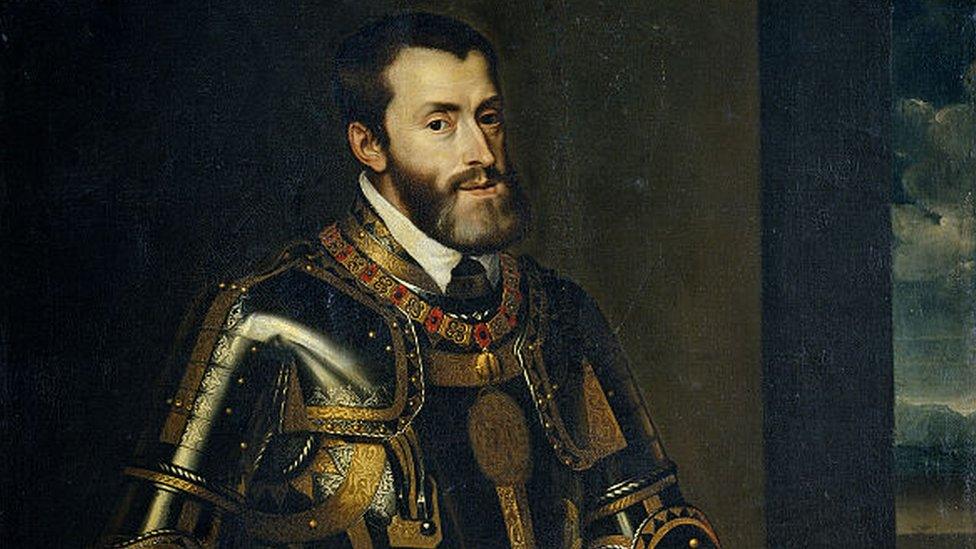Christine Granville: The Polish aristocrat who was Churchill's favourite spy
- Published
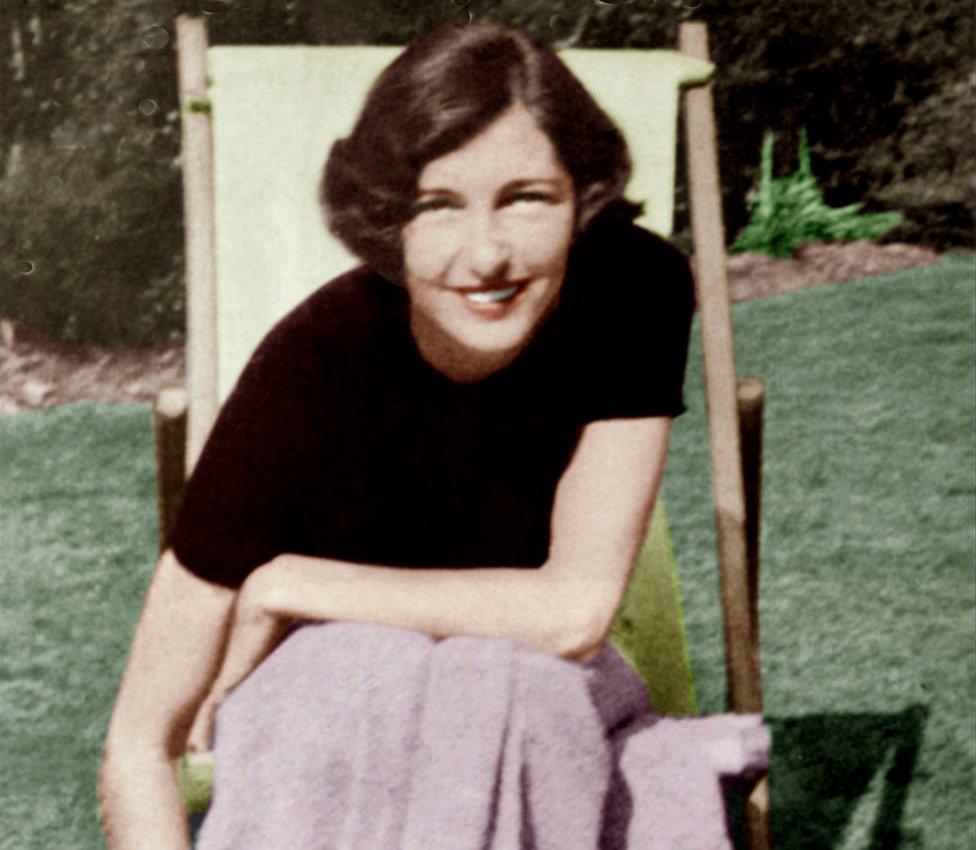
Britain's longest-serving World War Two spy, Christine Granville, risked her life countless times carrying out missions across Europe, yet today her contribution is barely known. Who was she and why does the nation owe her such a great debt?
On 15 June 1952, Granville returned to the west London hotel she called home, her flight to Belgium having been cancelled due to engine failure.
After making her way to her usual room on the first floor, she heard a man in the lobby shouting her name and demanding the return of some letters. Downstairs, she found herself faced by her former lover who suddenly thrust a commando knife into her chest, fatally wounding her.
Having survived many perilous situations on three different fronts during the course of World War Two, it was a bitter irony that she should lose her life in the apparent safety of a Kensington hotel.
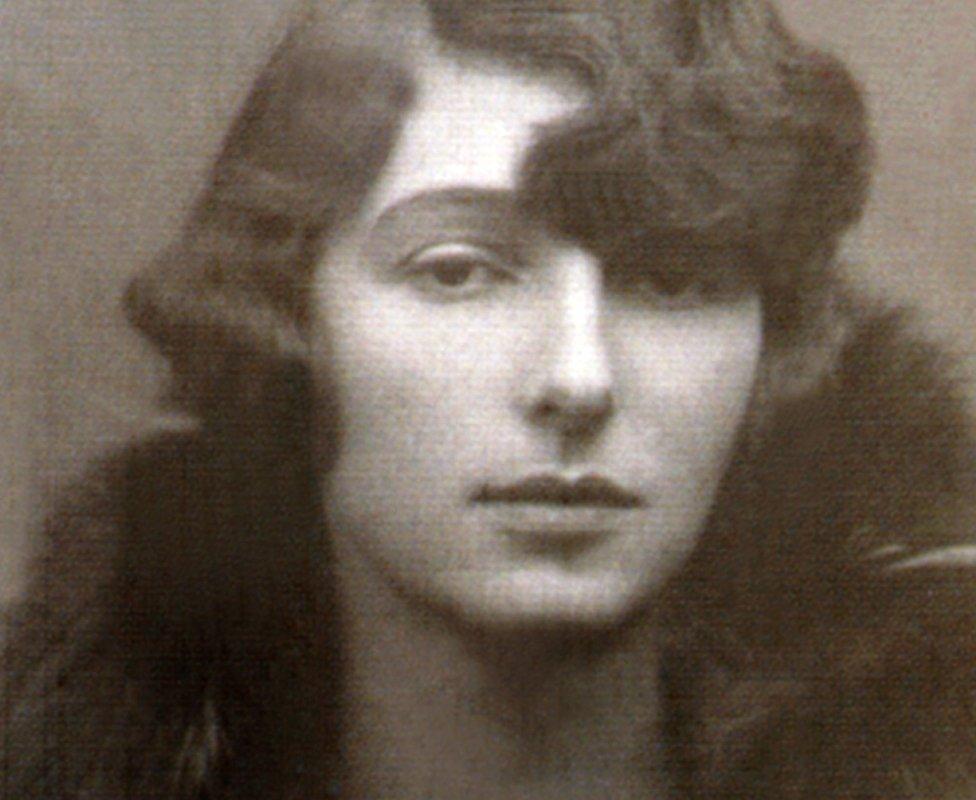
Granville worked for MI6 on several occasions in France, where agents had an average life-expectancy of only six weeks
Born in May 1908 as Maria Krystyna Janina Skarbek, she was the daughter of a Polish count and, through her mother, an heir to a Jewish banking family. She spent her early years running free on a grand country estate, a childhood that would profoundly influence her later life.
"She'd been brought up used to a lot of freedom and adoration, taught to ride a horse, shoot a shotgun, all that sort of thing," says historian Clare Mulley, who is the author of The Spy Who Loved, a biography of Christine Granville - the identity the agent assumed while working for the British.
In September 1939, she had been travelling in southern Africa with her second husband, a Polish diplomat, when they heard their homeland had been invaded by Nazi Germany. The couple headed straight to Britain to join the war effort.
While her husband went on to France to join the Allied forces, Granville had a different plan as to how she could make a difference.
"She storms off to what's meant to be the secret headquarters of MI6," says Mulley. "She doesn't so much volunteer as demand to be taken on."
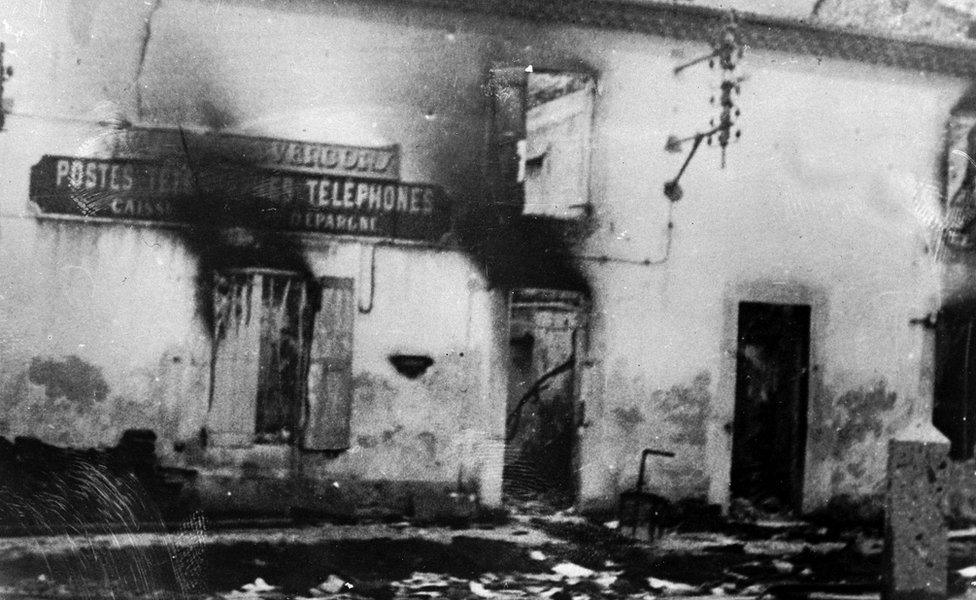
While in France, Granville spent time in Vassieux-en-Vercors, which faced heavy German bombing
Granville submitted a plan to ski across the Carpathian Mountains into Nazi-occupied Poland, to take in Allied propaganda material and funds and bring back intelligence about the occupation.
As they had limited information about what was happening in Eastern Europe, it was a plan Britain's spy bosses liked and, according to Mulley, Granville was promptly signed up as MI6's first female recruit.
Over the following years, the Polish exile became the stuff of legend in the intelligence community. "She was this countess who had all of these connections to varying people in the know," Mulley explains.
"She spoke all the right languages... and she knew how to get in and out under the radar because when she'd been a rather bored countess - because she's a high-adrenalin woman - she used to smuggle cigarettes across the border skiing, just for kicks. She didn't even smoke."
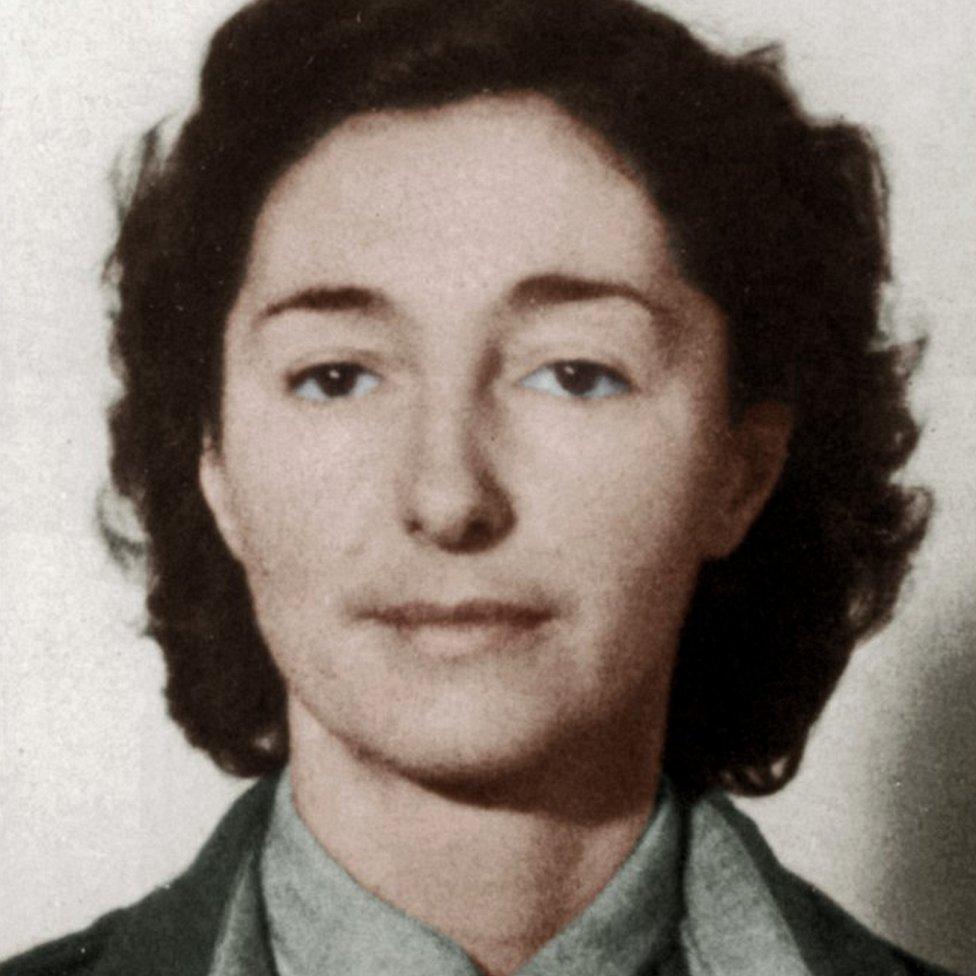
Granville arrived for one mission in France by parachuting from only 200m during gale-force winds
During postings for MI6 in Hungary, Egypt and France, she would carry out missions, travelling across numerous borders, sometimes hidden in the boot of a car, sometimes while fleeing machine-gun fire, and often along with one of the many lovers she had during the war.
On one occasion, she received a microfilm that showed German forces lining up along the Soviet border for what looked like an imminent attack. It was passed on to Winston Churchill who, according to his daughter Sarah, would declare that Granville was his favourite agent.
Twice she would be captured and interrogated by the Germans but was able to spring herself free. On one occasion, she convinced her captors she had tuberculosis by biting her tongue so hard she appeared to be hacking up blood.
"Her great tool is her brain. She's so quick-thinking; talks her way in and talks her way out. She's amazing," says Mulley.
Even animals were seemingly unable to resist her charms. In her book, Mulley describes two occasions when Granville was able to turn a snarling guard dog kept by border patrols into her pet that would follow her beck and call.
Along with her quick wits and immense courage, Granville was a master of manipulation and persuasion.
In 1944, she climbed up to a German garrison based on a strategic pass in the Alps. Using a loudhailer, she convinced a group of 63 Polish officers forced into the German army to sabotage the military installations and desert, causing the garrison's commander to surrender.
On the same day, she discovered her Special Operations Executive (SOE) commander - and lover - had been arrested in Digne in south-east France by the Gestapo, along with two other agents, and faced being executed by a firing squad.
At great risk to her own safety, she managed to free them all by storming into Digne Prison, claiming she was the niece of Field Marshal Montgomery and informing the officer in charge an American attack was imminent.
Mulley says: "By the end of an hour she's basically terrified this guy, and she says, 'You know, if you go ahead with this execution I will make sure that you are strung up. If you do anything to me, you're going to be hanging from a lamppost, but if you help me, I will speak out for you.'"
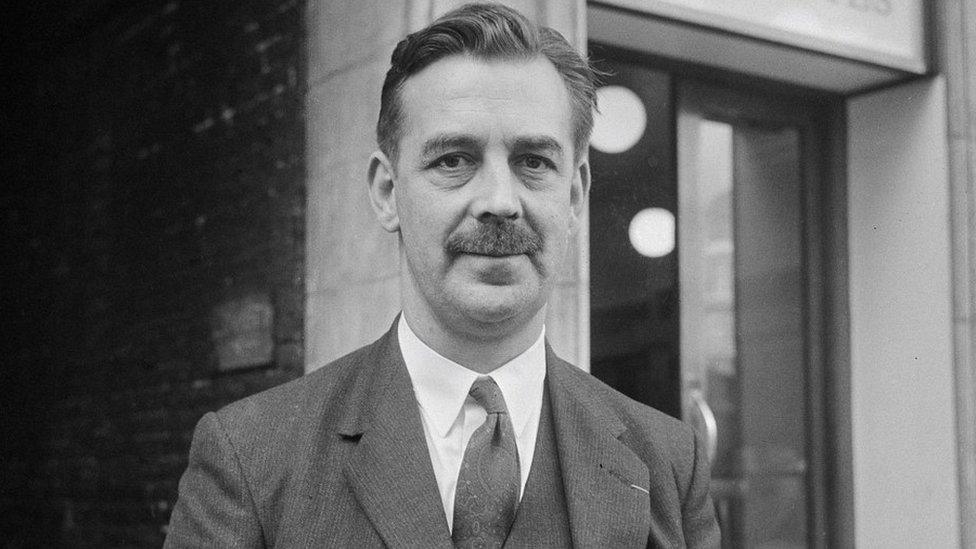
Francis Cammaerts, Granville's commander in France and lover, was one of three men she managed to get released from a Nazi prison
"There is a reason women were really useful in these [intelligence] roles," Mulley explains. "The men were expected to be working, so able-bodied men walking around are very suspicious. But women are going everywhere because they're trying to keep the businesses going; they're looking after their families and their in-laws - she's undercover in plain sight."
Yet in spite of her heroism, come the end of the war, in Britain Granville would find the country for which she had repeatedly risked her life had seemingly abandoned her.
"The last entry in the British files that relates to her, and this is just a quote from it, it says 'she is no longer wanted'," explains Mulley.
"Young men - some of them haven't even served in the war themselves - they just say, 'I doubt she did all this' and 'this little girl seems to be making things up' and 'she's very difficult to place'. It's very insulting, incredibly sexist stuff."
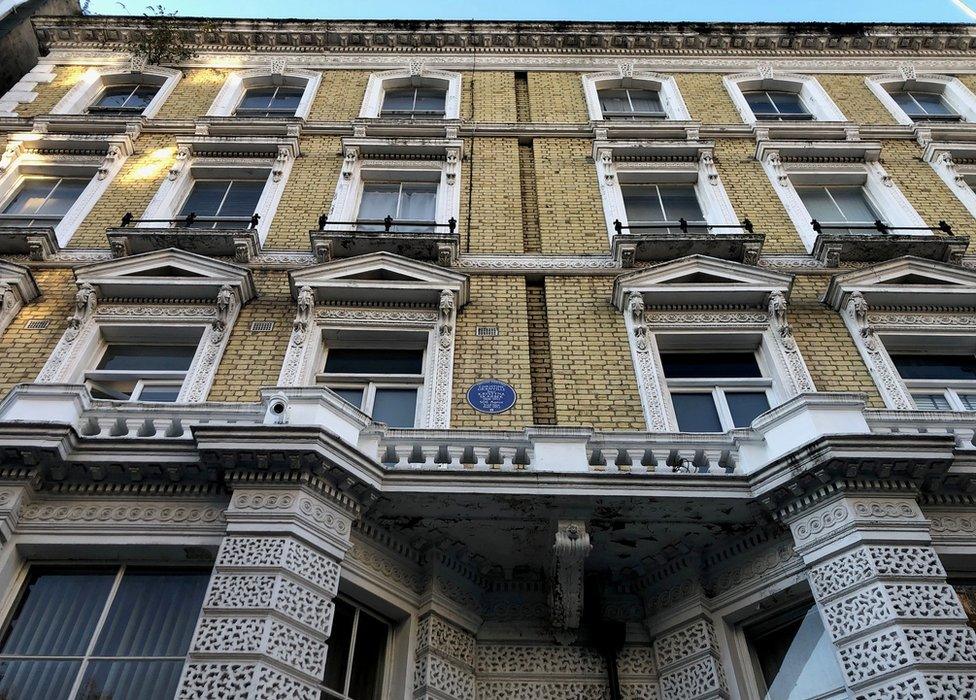
The Shelbourne Hotel in Kensington, where Granville lived in London, was run by the Polish Relief Society to provide cheap accommodation
Even though Granville was unable to return to communist-controlled Poland because of the likelihood of her being targeted by the Soviet secret services, her temporary UK papers were not renewed and she had to leave Britain.
Granville would return to the UK to refuse to accept a George Medal and OBE awarded to her for her war efforts, thereby shaming the government into finally offering her citizenship. She ended up accepting the awards.
While living in the Shelbourne Hotel, she took on roles very different from her wartime escapades, waitressing in cafes and selling frocks in Harrods, before taking a job as a cleaner on a passenger ship.
"You have to remember that when she came to Britain to serve, she was with her diplomat husband at the start of the war and they arrive first class on a passenger ship, while at the end of the war, she's having to become a bathroom stewardess on the liners - but at least it gives her some sort of feeling of freedom," Mulley says.
Even so, Granville would again experience discrimination when the ship's captain at one point requested his staff wear any medals they had earned during the war. Having served on three fronts, Granville had acquired numerous awards but was accused by her fellow workers of being a fake.
"She's a woman, so it seems absolutely ridiculous. She's got a foreign accent. She's quite dark-haired, looks a bit Jewish. You know all of these prejudices are stacked against her and she gets a really hard time," Mulley says.
One man, a fellow steward, did stand up for her - Dennis George Muldowney.
The pair started a relationship but Granville soon became bored by him. Spurned, an obsessive Muldowney continued to harass her until the night he murdered her in the Shelbourne Hotel.
"She came downstairs... then he just lunged at her and she cried out. She died within seconds of the impact; this blade had gone straight through her heart," Mulley says.
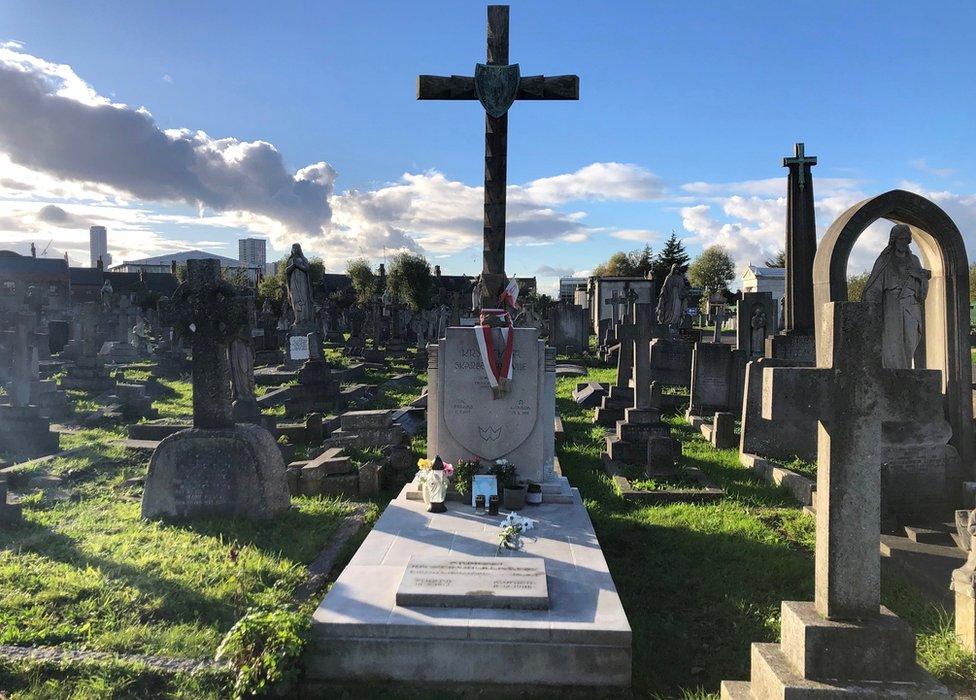
The World War Two agent is buried under the name Krystyna Skarbek-Granville at St Mary's Roman Catholic Cemetery in Kensal Green, north-west London
Muldowney would be hanged 10 weeks later and, while the murder became front-page news, over the years Granville's story has faded from memory.
"She falls between every category, so no-one's blowing the trumpet for her," Mulley says.
"She's too much of an action person to be really feminine, and yet she's obviously too much of a woman to really be a male soldier. She's too English for the Poles to consider her Polish - she's never been recognised with an honour in Poland - and yet she's far too Polish for the Brits to really consider her truly British."
Mulley, who has been working to have Granville's achievements more widely recognised, successfully organised in 2020 for a blue plaque to be placed on Number 1 Lexham Gardens, which was once the Shelbourne Hotel and is still a hotel today. Mulley was also behind the creation of a Granville Suite at the luxury hotel The OWO, which opened in September in what was once the Old War Office in Whitehall.
"She's fallen between the lines and I think that's what's happened to her story as well," Mulley says. "So I'm out there, solo championing her."
Clare Mulley's latest book Agent Zo tells the tale of Polish World War Two resistance fighter Elżbieta Zawacka and will be published in May.

Listen to the best of BBC Radio London on Sounds and follow BBC London on Facebook, external, X, external and Instagram, external. Send your story ideas to hello.bbclondon@bbc.co.uk, external
Related topics
- Published6 December 2023

- Published29 September 2023

- Published6 June 2023
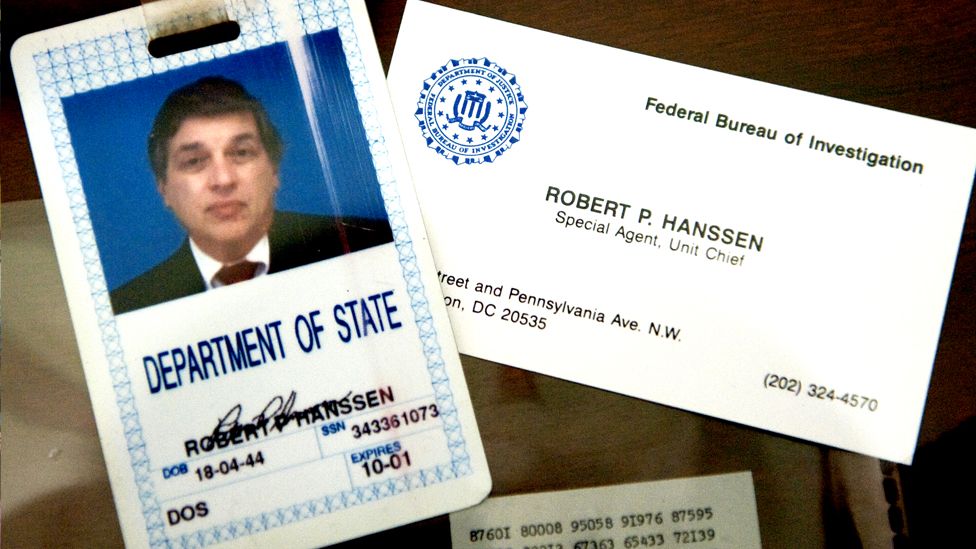
- Published27 November 2022
